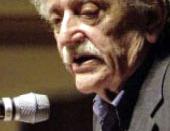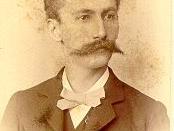KURT VONNEGUT: THE AUTHOR AND HIS TIMES
In 1968, the year Kurt Vonnegut, Jr. was writing Slaughterhouse-Five, the war in Vietnam was at its height. Each evening it invaded millions of American living rooms on the television news, and what viewers saw of the conflict night after night made them worried and uneasy about what was taking place. Opinion polls showed that most Americans were then in favor of the war, but a wave of antiwar protest had welled up across the country, mainly on college campuses. Peaceful demonstrations gave way to riots as hostility deepened between prowar and antiwar factions.
And there was violence of another kind that year. In the spring, two prominent figures were assassinated: first Dr. Martin Luther King, Jr., the inspirational leader of the civil rights movement, then Senator Robert F. Kennedy, the leading Democratic candidate for president, who was running on an antiwar platform.
Americans were shocked by these brutal killings, and they began to share with the war protesters a general mood of anger and frustration.
For Kurt Vonnegut in 1968, the atrocities of the war in Vietnam had a deeper significance. Twenty-three years earlier, he had been a soldier in the last months of World War II. As a prisoner of war, he was in Dresden, Germany, on the night of February 13, 1945, when Allied bombers attacked so fiercely that they created a great fire-storm that incinerated the entire city. Some 135,000 people died in the raid, perhaps twice the number of people killed in Hiroshima when the first atom bomb was dropped there about six months later.
Vonnegut spent that night with other POWs and their guards in an underground shelter. When it was possible to leave the shelter the next afternoon, he saw the aftermath of the fire-storm.



Gave me just what i needed
this essay was just the thing i was looking for
thanks
1 out of 1 people found this comment useful.